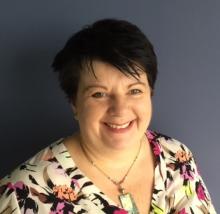How can officers help to position the arts, culture and heritage within their council’s priorities? Sue Thiedeman, Head of Culture and Visitor Economy, Barnsley Council, shares her thoughts. This opinion piece forms part of the inspiring officer leadership section of our online Culture Hub.
The main challenge for arts and culture services at the moment is the financial challenge. That overshadows everything. We are doing a good job in managing that in Barnsley, with a ‘future council’ transformation in place and new ways of delivering services. Our long-term plan within the culture and visitor economy service is to build resilience through greater income generation and eventually to become self-sustaining, whilst continuing to improve services.
Our sustainability strategy is based around three elements: earned income, fundraising and being a lean and efficient service. We are applying for grants, being creative about delivery and making sure all our work is strongly aligned with the council’s priorities. We have a really good business planning process in place and run ‘check and challenge’ sessions at departmental and senior management level. We are building capacity in different ways – for example, our museum learning team is now a fully traded service.
Heritage and culture are strongly aligned to economic development and we can demonstrate output through performance indicators such as number of visitors, economic impact and income generation. We can also demonstrate social outcomes – our work is protecting the borough for future generations and helping people to achieve their full potential.
We are looking out for new business opportunities. For example, we are developing a business plan for a pet crematorium service, a profit-making business with money invested back into the culture service. Barnsley Council encourages service areas to be innovative and creative and has made a fund available, which paid for the feasibility and business case development. We have a few other ideas and are even looking into taking over existing businesses that come up for sale, to provide new income streams.
We have set up a Museums and Heritage Development Trust to increase our profile and raise money through public donations, corporate support and reaching new funding opportunities. We want to make sure that our museums and heritage attractions remain free for people to use, so we now go out of our way to engage with people. Staff are actively encouraged to ask for donations. We run five museum shops and the council has invested in skills training such as merchandising and stock management. We look for efficiency savings where possible, for example we have centralised key management functions for the five museums and improved customer insight and marketing.
Advocacy is a critical part of our success in securing investment, so we do a lot of positive promotion in the local, regional and national media. We try very hard to be excellent and have won or been shortlisted for many national awards. We produce an annual review to let councillors, colleagues, and partners know what we are doing. We engage councillors in actively promoting our services, for example inviting them to events. We are also good at securing sponsorship – we are currently in discussions with a large company about an annual sponsorship deal with banners at our venues and a presence at large events.
I feel very positive about the future for cultural services in Barnsley. We have worked hard to win the ‘hearts and minds’ of people and our services are highly valued. The long-term plan is more income generation, and we have tough targets in place to reduce council direct funding. We are really determined that eventually we will become a self-sustaining service – but, critically, one that others look to as an exemplar.
This opinion piece has been developed in conjunction with Arts Council England.


